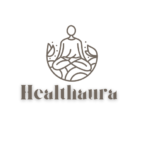Chills without a fever can be a perplexing symptom, often leaving individuals concerned about their health. Understanding the potential causes and when to seek medical attention is crucial for managing this condition.
Detailed Understanding of Chills Without Fever
1. Chills as a Physiological Response:
- Chills are a natural response of the body when it tries to increase its temperature. This can happen during a fever when the body’s set point for temperature is higher than usual. However, chills without fever are a bit more complex. These occur when the body feels the need to generate heat, even though its temperature is not actually below normal.
2. Differentiating Chills from Feeling Cold:
- It’s crucial to distinguish between chills and just feeling cold due to the environment. Chills involve involuntary muscle contractions (shivering) and a sensation of cold that persists even in warm settings, unlike the latter, which usually resolves upon moving to a warmer place or adding layers of clothing.

Expanded View on Potential Causes
1. Environmental Factors:
- Extended exposure to cold climates or sudden temperature changes can trigger the body’s defence mechanism, leading to chills. This is the body’s attempt to generate heat through muscle activity.
2. Physical Activity in Cold Weather:
- Engaging in physical activities in cold conditions can disrupt the body’s thermal regulation. Once the body cools down post-exercise, it may trigger chills as a response to restore normal temperature.
3. Nutritional Deficiencies:
- Lack of essential nutrients can impair the body’s ability to regulate its temperature effectively. Deficiencies in vitamins and minerals can hinder metabolic processes that are crucial for maintaining normal body heat.
4. Dehydration:
- Dehydration affects the body’s volume of blood and its ability to circulate efficiently, which can lead to a drop in core body temperature, triggering chills as a response.
5. Medical Conditions:
- Hypothermia: A severe drop in body temperature due to prolonged exposure to cold.
- Infections: Certain viral or bacterial infections can cause chills as an immune response, even without a fever.
- Thyroid Disorders: An underactive thyroid slows metabolism, which can lead to a decreased internal body temperature.
- Psychological Factors: Stress and anxiety can cause physiological changes, including chills.
- Blood Sugar Fluctuations: Hypoglycemia can trigger a stress response in the body, leading to chills.
- Autoimmune Diseases: Conditions like lupus disrupt normal body functions, including temperature regulation.
Enhanced Home Remedies and Prevention Strategies
1. Dressing Appropriately:
- In cold environments, wearing layered clothing and ensuring that the body remains dry are key steps in preventing chills.
2. Hydration:
- Regular intake of fluids is vital, especially in warmer climates or during illness, to maintain normal body functions and temperature.
3. Balanced Diet:
- Consuming a diet rich in essential nutrients supports the body’s metabolic processes and helps maintain normal body temperature.
In-depth Guidance on When to Seek Medical Attention
- Occasional vs. Recurrent Chills:
- While sporadic episodes of chills without fever are usually not alarming, frequent occurrences should prompt medical consultation.
- Associated Symptoms:
- If chills are accompanied by symptoms like persistent fatigue, muscle aches, significant changes in heart rate, urine colour or frequency, or unexplained weight loss, it could indicate a more serious underlying health issue.
- Seeking Professional Advice:
- Consulting with a healthcare professional is vital for a proper diagnosis, especially if self-care measures do not alleviate the symptoms. Medical experts can conduct necessary tests to identify any underlying conditions.
Conclusion: Understanding the nuances of chills without fever is crucial for effective management. While home remedies and self-care can be beneficial, recognizing when to seek professional medical advice is key. Each individual’s health situation is distinct, and personalized medical consultation is always recommended for accurate diagnosis and treatment.


